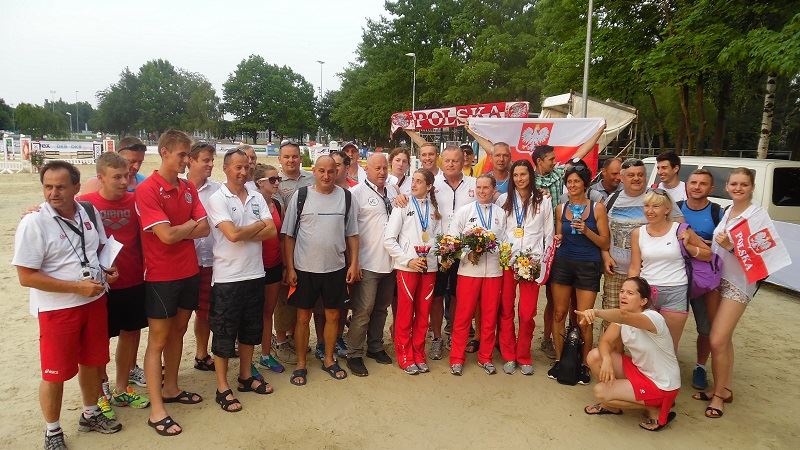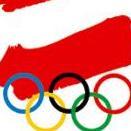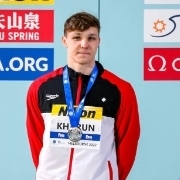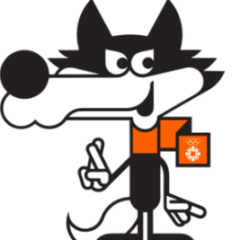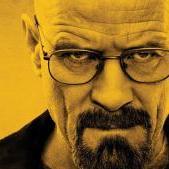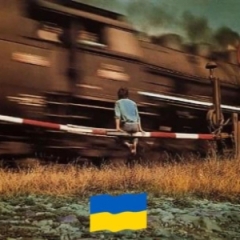-
Posts
2,023 -
Joined
-
Last visited
-
Days Won
17
Reputation Activity
-
 Vojthas got a reaction from Monzanator for an article, Poland with an Olympic team quota in Eventing
Vojthas got a reaction from Monzanator for an article, Poland with an Olympic team quota in Eventing
The CCIO4*-L contest at Equestrian Festival Baborówko has decided the Olympic quota for the team in group C. It was won by the host team of Poland - the only one to complete the eventing with all the riders.
Already on Thursday it was clear that Czech team will not participate in this battle as Miloslav Přihoda Jr's horse Ferreolus Lat didn't pass the veterinarian inspection. It brought the battle down to two teams - Poland and Hungary. Dressage test gave 9,7 point of advantage to the hosts, but it was the cross country to become crucial.
With Noémi Viola Doerfer falling of her horse and Balázs Kaizinger retiring and all the Polish pairs reaching the finish line with no obstacle penalties it was enough for Poland to complete the competition to get the tickets to Paris. The CCIO4*-L contest was however a great chance to get the MER score - and all the Polish athletes reached the final TOP5 with Jan Kamiński winning, Mateusz Kiempa (starting individually only), Małgorzata Korycka, Paweł Warszawski and Wiktoria Knap behind him.
Now it's up to the national team's coach, Olympic champion Andreas Dibowski, to pick the three pairs and an alternate one for the Paris 2024 Olympic Games. According to the plan, he wants to raise the level in Poland to have seven or eight pairs to pick from late spring next year.
Equestrian FEI Eventing Group C Olympic Games Qualifier 2023 Discussion Thread
Eqeustrian at the Summer Olympic Games Paris 2024 Qualification Tracker
-
 Vojthas got a reaction from Josh for an article, Poland with an Olympic team quota in Eventing
Vojthas got a reaction from Josh for an article, Poland with an Olympic team quota in Eventing
The CCIO4*-L contest at Equestrian Festival Baborówko has decided the Olympic quota for the team in group C. It was won by the host team of Poland - the only one to complete the eventing with all the riders.
Already on Thursday it was clear that Czech team will not participate in this battle as Miloslav Přihoda Jr's horse Ferreolus Lat didn't pass the veterinarian inspection. It brought the battle down to two teams - Poland and Hungary. Dressage test gave 9,7 point of advantage to the hosts, but it was the cross country to become crucial.
With Noémi Viola Doerfer falling of her horse and Balázs Kaizinger retiring and all the Polish pairs reaching the finish line with no obstacle penalties it was enough for Poland to complete the competition to get the tickets to Paris. The CCIO4*-L contest was however a great chance to get the MER score - and all the Polish athletes reached the final TOP5 with Jan Kamiński winning, Mateusz Kiempa (starting individually only), Małgorzata Korycka, Paweł Warszawski and Wiktoria Knap behind him.
Now it's up to the national team's coach, Olympic champion Andreas Dibowski, to pick the three pairs and an alternate one for the Paris 2024 Olympic Games. According to the plan, he wants to raise the level in Poland to have seven or eight pairs to pick from late spring next year.
Equestrian FEI Eventing Group C Olympic Games Qualifier 2023 Discussion Thread
Eqeustrian at the Summer Olympic Games Paris 2024 Qualification Tracker
-
 Vojthas got a reaction from Josh for an article, And then there were two - Eventing Group C Qualifier preview
Vojthas got a reaction from Josh for an article, And then there were two - Eventing Group C Qualifier preview
Thursday was te first competition day of Equestrian Festival Baborówko, which CCIO4*-L contest is the Paris 2024 Qualification event for Group C. The veterinarian inspection for the participating was held and that brought the battle to just two nations.
Only four countries entered their athletes to the CCIO4*-L - Bulgaria with just one Petar Marchev and Gaskon, Czech Republic and Hungary with three pairs and the event host, Poland, with six pairs. During the horse inspection Miloslav Přihoda Jr and Ferreorus Lat were eliminated, which caused Czech team to be incomplete and thus unable to battle for the Olympic quota.
This means only two countries will have the opportunity to fight for the Paris 2024 - Hungary and Poland. With Poland having six pairs in the CCIO4*-L, the national team coach, Andreas Dibowski, decided the team will feature Małgorzata Korycka and Canvalencia, Jan Kamiński and Jard, Paweł Warszawski and Lucinda Ex Ani 4 and Wiktoria Knap and Quintus 134. The Hungarian team will have Balázs Kaizinger and Clover 15, Noémi Viola Doerfer and Crystal Barney and Imre Tóth and Zypresse 8.
The dressage test will be held on Friday, the cross on Saturday while the final show jumping test will decide the quota on Sunday. Poland seems to be favorite again - they've won the quota for Tokyo 2020 Olympics four years ago, also in Baborówko.
Equestrian FEI Eventing Group C Olympic Games Qualifier 2023 Discussion Thread
Eqeustrian at the Summer Olympic Games Paris 2024 Qualification Tracker
-
 Vojthas got a reaction from bmo for an article, And then there were two - Eventing Group C Qualifier preview
Vojthas got a reaction from bmo for an article, And then there were two - Eventing Group C Qualifier preview
Thursday was te first competition day of Equestrian Festival Baborówko, which CCIO4*-L contest is the Paris 2024 Qualification event for Group C. The veterinarian inspection for the participating was held and that brought the battle to just two nations.
Only four countries entered their athletes to the CCIO4*-L - Bulgaria with just one Petar Marchev and Gaskon, Czech Republic and Hungary with three pairs and the event host, Poland, with six pairs. During the horse inspection Miloslav Přihoda Jr and Ferreorus Lat were eliminated, which caused Czech team to be incomplete and thus unable to battle for the Olympic quota.
This means only two countries will have the opportunity to fight for the Paris 2024 - Hungary and Poland. With Poland having six pairs in the CCIO4*-L, the national team coach, Andreas Dibowski, decided the team will feature Małgorzata Korycka and Canvalencia, Jan Kamiński and Jard, Paweł Warszawski and Lucinda Ex Ani 4 and Wiktoria Knap and Quintus 134. The Hungarian team will have Balázs Kaizinger and Clover 15, Noémi Viola Doerfer and Crystal Barney and Imre Tóth and Zypresse 8.
The dressage test will be held on Friday, the cross on Saturday while the final show jumping test will decide the quota on Sunday. Poland seems to be favorite again - they've won the quota for Tokyo 2020 Olympics four years ago, also in Baborówko.
Equestrian FEI Eventing Group C Olympic Games Qualifier 2023 Discussion Thread
Eqeustrian at the Summer Olympic Games Paris 2024 Qualification Tracker
-
 Vojthas got a reaction from Wumo for an article, Denmark is the World Team Dressage Champion, six other quotas for Paris 2024 given
Vojthas got a reaction from Wumo for an article, Denmark is the World Team Dressage Champion, six other quotas for Paris 2024 given
The victory of the hosts brought the team event of dressage at the FEI Wrold Championship in Herning to a conclusion. Denmark shared the podium with Great Britain and Germany. Alltogether seven teams secured a place for the Paris 2024 Olympics.
The Grand Prix have been held for two days with two athletes achieving a result above 80% - Cathrine Laudrup-Dufour on Vamos Amigos (81,864%) and Charlotte Fry on Glamourdale (80,838%). They were the leaders of the teams battling for the gold. The success was on the hosts' side with Nanna Merrald Rasmussen on Blue Hors Zack (76,724%) and Carina Cassøe Krüth on Heiline's Danciera (76,863%) beating the Brits, where Fry was joined by Charlotte Dujardin on Imhotep (77,407%) and Gareth Hughes on Classic Briolinca (75,978%). The podium was completed by the title defending Germans with Ingrid Klimke on Franzikus having their result dropped as the worst in the team (75,683%) the result of 230,791% was achieved by Isabell Werth on DSP Quantaz (77,127%), Bejamin Werndl on Famoso OLD (77,003%) and Frederic Wandres on Duke of Britain FRH (76,661%).
Beside the medallists, the three next teams also secured a place in the Paris 2024 Olympic team event (as well as team members starting in the individual competition). These are Sweden, Netherlands (including Dinja van Liere on Hermes - third pair of the Grand Prix with 78,835%) and USA. Another quota went to team of Australia, placed eighth, being the best from the Group G of South East Asia and Oceania with Japan in 15th and New Zealand eliminated as Gaylene Lennard's Jax Johnson haven't passed the inspection and the team had no reserve of their three-pair team.
The next medal events are to be held on Monday with dressage Grand Prix Special (individual only) and the non-Olympic vaulting Squad and Individual medals to be given. The next Olympic quotas will be distributed during the jumping team final on Friday the 12th.
Author: Wojciech Nowakowski, Totallympics
Photo: © FEI/Leanjo de Koster
-
 Vojthas got a reaction from ChandlerMne for an article, Denmark is the World Team Dressage Champion, six other quotas for Paris 2024 given
Vojthas got a reaction from ChandlerMne for an article, Denmark is the World Team Dressage Champion, six other quotas for Paris 2024 given
The victory of the hosts brought the team event of dressage at the FEI Wrold Championship in Herning to a conclusion. Denmark shared the podium with Great Britain and Germany. Alltogether seven teams secured a place for the Paris 2024 Olympics.
The Grand Prix have been held for two days with two athletes achieving a result above 80% - Cathrine Laudrup-Dufour on Vamos Amigos (81,864%) and Charlotte Fry on Glamourdale (80,838%). They were the leaders of the teams battling for the gold. The success was on the hosts' side with Nanna Merrald Rasmussen on Blue Hors Zack (76,724%) and Carina Cassøe Krüth on Heiline's Danciera (76,863%) beating the Brits, where Fry was joined by Charlotte Dujardin on Imhotep (77,407%) and Gareth Hughes on Classic Briolinca (75,978%). The podium was completed by the title defending Germans with Ingrid Klimke on Franzikus having their result dropped as the worst in the team (75,683%) the result of 230,791% was achieved by Isabell Werth on DSP Quantaz (77,127%), Bejamin Werndl on Famoso OLD (77,003%) and Frederic Wandres on Duke of Britain FRH (76,661%).
Beside the medallists, the three next teams also secured a place in the Paris 2024 Olympic team event (as well as team members starting in the individual competition). These are Sweden, Netherlands (including Dinja van Liere on Hermes - third pair of the Grand Prix with 78,835%) and USA. Another quota went to team of Australia, placed eighth, being the best from the Group G of South East Asia and Oceania with Japan in 15th and New Zealand eliminated as Gaylene Lennard's Jax Johnson haven't passed the inspection and the team had no reserve of their three-pair team.
The next medal events are to be held on Monday with dressage Grand Prix Special (individual only) and the non-Olympic vaulting Squad and Individual medals to be given. The next Olympic quotas will be distributed during the jumping team final on Friday the 12th.
Author: Wojciech Nowakowski, Totallympics
Photo: © FEI/Leanjo de Koster
-
 Vojthas got a reaction from nickp1991 for an article, Denmark is the World Team Dressage Champion, six other quotas for Paris 2024 given
Vojthas got a reaction from nickp1991 for an article, Denmark is the World Team Dressage Champion, six other quotas for Paris 2024 given
The victory of the hosts brought the team event of dressage at the FEI Wrold Championship in Herning to a conclusion. Denmark shared the podium with Great Britain and Germany. Alltogether seven teams secured a place for the Paris 2024 Olympics.
The Grand Prix have been held for two days with two athletes achieving a result above 80% - Cathrine Laudrup-Dufour on Vamos Amigos (81,864%) and Charlotte Fry on Glamourdale (80,838%). They were the leaders of the teams battling for the gold. The success was on the hosts' side with Nanna Merrald Rasmussen on Blue Hors Zack (76,724%) and Carina Cassøe Krüth on Heiline's Danciera (76,863%) beating the Brits, where Fry was joined by Charlotte Dujardin on Imhotep (77,407%) and Gareth Hughes on Classic Briolinca (75,978%). The podium was completed by the title defending Germans with Ingrid Klimke on Franzikus having their result dropped as the worst in the team (75,683%) the result of 230,791% was achieved by Isabell Werth on DSP Quantaz (77,127%), Bejamin Werndl on Famoso OLD (77,003%) and Frederic Wandres on Duke of Britain FRH (76,661%).
Beside the medallists, the three next teams also secured a place in the Paris 2024 Olympic team event (as well as team members starting in the individual competition). These are Sweden, Netherlands (including Dinja van Liere on Hermes - third pair of the Grand Prix with 78,835%) and USA. Another quota went to team of Australia, placed eighth, being the best from the Group G of South East Asia and Oceania with Japan in 15th and New Zealand eliminated as Gaylene Lennard's Jax Johnson haven't passed the inspection and the team had no reserve of their three-pair team.
The next medal events are to be held on Monday with dressage Grand Prix Special (individual only) and the non-Olympic vaulting Squad and Individual medals to be given. The next Olympic quotas will be distributed during the jumping team final on Friday the 12th.
Author: Wojciech Nowakowski, Totallympics
Photo: © FEI/Leanjo de Koster
-
 Vojthas got a reaction from Sindo for an article, Denmark is the World Team Dressage Champion, six other quotas for Paris 2024 given
Vojthas got a reaction from Sindo for an article, Denmark is the World Team Dressage Champion, six other quotas for Paris 2024 given
The victory of the hosts brought the team event of dressage at the FEI Wrold Championship in Herning to a conclusion. Denmark shared the podium with Great Britain and Germany. Alltogether seven teams secured a place for the Paris 2024 Olympics.
The Grand Prix have been held for two days with two athletes achieving a result above 80% - Cathrine Laudrup-Dufour on Vamos Amigos (81,864%) and Charlotte Fry on Glamourdale (80,838%). They were the leaders of the teams battling for the gold. The success was on the hosts' side with Nanna Merrald Rasmussen on Blue Hors Zack (76,724%) and Carina Cassøe Krüth on Heiline's Danciera (76,863%) beating the Brits, where Fry was joined by Charlotte Dujardin on Imhotep (77,407%) and Gareth Hughes on Classic Briolinca (75,978%). The podium was completed by the title defending Germans with Ingrid Klimke on Franzikus having their result dropped as the worst in the team (75,683%) the result of 230,791% was achieved by Isabell Werth on DSP Quantaz (77,127%), Bejamin Werndl on Famoso OLD (77,003%) and Frederic Wandres on Duke of Britain FRH (76,661%).
Beside the medallists, the three next teams also secured a place in the Paris 2024 Olympic team event (as well as team members starting in the individual competition). These are Sweden, Netherlands (including Dinja van Liere on Hermes - third pair of the Grand Prix with 78,835%) and USA. Another quota went to team of Australia, placed eighth, being the best from the Group G of South East Asia and Oceania with Japan in 15th and New Zealand eliminated as Gaylene Lennard's Jax Johnson haven't passed the inspection and the team had no reserve of their three-pair team.
The next medal events are to be held on Monday with dressage Grand Prix Special (individual only) and the non-Olympic vaulting Squad and Individual medals to be given. The next Olympic quotas will be distributed during the jumping team final on Friday the 12th.
Author: Wojciech Nowakowski, Totallympics
Photo: © FEI/Leanjo de Koster
-
 Vojthas got a reaction from hckošice for an article, IOC EB closes the case of CONI, but still concerned about AIBA and IWF
Vojthas got a reaction from hckošice for an article, IOC EB closes the case of CONI, but still concerned about AIBA and IWF
The first IOC Executive Board meeting in 2021 was held remotely this Wednesday. The meeting was concentrated on Tokyo 2020 preparations, but also on current topics important for the Olympic Movement.
One such case was the autonomy of CONI, the Italian NOC. After a decree was accepted and presented to the IOC Executive Board by the Council of Ministers in Italy, the EB decided to close the case, ensured of the autonomy of the CONI.
However, concerns remained around the two international federations, that are still under the microscope of the IOC due to their governance problems. The IOC Executive Board has not seen progress in the AIBA, while the IWF's problems with both governance and the anti-doping code have been noted as worsening.
In terms of Tokyo 2020, IOC President Thomas Bach made it clear during his press conference, that the IOC is still on it’s way to organizing the Games in the best possible manner during the times of pandemic. He denied the idea of cancellation, as well as, postponing them to 2032. Instead, he put the incoming playbook for Tokyo 2020 participants as the main source of the decisions prepared by the IOC experts.
The upcoming IOC meetings will be held in March, including the 137th IOC Session - this one will be held remotely, although earlier planned to be hosted by Athens. The proposal has been made by the IOC EB to hold the 2025 Session in the capital of Greece instead.
-
 Vojthas got a reaction from rafalgorka for an article, First disciplines for Kraków-Małopolska 2023 European Games confirmed
Vojthas got a reaction from rafalgorka for an article, First disciplines for Kraków-Małopolska 2023 European Games confirmed
First three disciplines have been officially confirmed by the EOC in the programme of the III European Games Kraków-Małopolska 2023. These are canoe slalom, taekwondo and modern pentathlon.
For canoe slalom and modern pentathlon this will be the debut at the European Games. The canoe track in Kraków-Kolna is one of the best in the world, hosting top events every year, while modern pentathlon has big traditions in host country, Poland, including Olympic gold medals of Janusz Peciak, current Director of Sports of UIPM, and Arkadiusz Skrzypaszek individually and in team with Dariusz Goździak and Maciej Czyżowicz in Barcelona, as well as multiple medals od World and European Championships.
Taekwondo was a part of the European Games in Baku in 2015 and it's come back will have an increased meaning with the Olympic qualification ranking points to achieve there having the highest number at any continental event. Also the canoe slalom and modern pentathlon will have a significant role in Paris 2024 qualifications - the European Games will serve as the European Championships in those disciplines, giving the direct quotas to the best athletes.
The provisional list, that was announced in September this year, has 20 more disciplines, including mostly the Olympic ones (for example badminton, judo, rugby sevens, shooting, triathlon), as well as still developing yet gaining quite popularity in Poland beach handball, as well as ski jumping in the summer version as one of the most popular sports in the region hosting the Games.
-
 Vojthas got a reaction from John Foyne for an article, Interview with Shiny Fang, UIPM Secretary General, on changes in the modern pentathlon
Vojthas got a reaction from John Foyne for an article, Interview with Shiny Fang, UIPM Secretary General, on changes in the modern pentathlon
The UIPM has recently announced the introduction of the New Olympic Pentathlon, which aims to shorten the time of the competition and make it more attractive to the audience. The approval of the format by the Executive Board caused a mostly negative reaction, from the athletes, whom the changes will affect the most. The following is an interview with Shiny Fang, UIPM Secretary General, in which she tries to explain the biggest doubts about the changes.
The first question is, what is on the mind of the Pentathlon community – what is the reason for those changes?
To aim for the future, to embrace the youth, and to widen the sport’s audience with a more compact and understandable sport product for media, also to demonstrate our most complete athletes in a shorter time without losing audience in between parts of the longer competition.
Modern pentathlon’s place in the Olympic programme is a crucial thing for the sport, which is also a legacy of being founded by Baron Pierre de Coubertin himself. Was the proposal consulted with the IOC representatives as they should be the ones to know better, in which direction the changes should go?
Certainly UIPM as the world governing body of the sport knows better how we can improve the sport and its product/format. However, if we are talking about Pentathlon in the Olympic Games, we first need to understand what is the IOC’s vision for future Games, and what would be the most valuable things to evaluate the sport’s impact in the Games. Therefore, it is a collective effort by all involved or responsible parties in the Games, including valuable advice from OBS, Olympic Channel and Paris 2024.
Modern pentathlon has been changing for some time, but this is a true revolution. Doesn’t it bring confusion to new pentathlon fans to learn the sport from the beginning?
Well, what we are changing or innovating is about our sports product, to smoothly shape it to a fan-friendly and media-friendly format so that audience can see a compact and complete sport within a shorter time. As you might know well, the sport has come from 5 days, to 1 day, to 5 hours, and now to 90min. However, what we haven’t changed is the core essence of the sport created by Coubertin – that is, the historical elements/disciplines are still the same since the sport was born.
The proposed changes apply for only the Olympic Games (and the Olympic qualifiers, as far as I understand). Would it not be harder for fans to learn one format for the Olympics and another for all other competitions?
We do have EB approved Olympic format and qualification events format, and those Olympic qualification events will be major UIPM competitions. Therefore, in terms of the format for UIPM major competitions, we will keep the same direction as the Olympic format, but with certain flexibility, such as number of athletes in final group, length of the breaks between each disciplines, etc.
For UIPM competitions, we will have relatively more time to test and to fix more details, since the qualification events will only start from 2023. But for the Olympic format, we must be in line with the timeline of the IOC and Paris 2024, to give organisers enough time. By the way, it is quite normal that some other sports also have an Olympic format and a different IF format, so nothing unusual.
The athletes are openly against it, and primarily because of the increased injury risks caused by a shortened warm-up time. Was the new format consulted with them?
Actually the athletes are not against innovations, they are open-minded and intelligent, also sometimes they give us a lot of good ideas. For the new format, due to a series of processes which we also want to keep low profile with mainly athletes representatives in each working group and committees, it is normal that a lot of athletes who haven’t joined in athletes meetings at earlier stage, haven’t been well informed.
Clearly, the communication with athletes is the key, and during the athletes call on November 11, a lot of their questions and doubts were addressed. But it is not enough, we will certainly engage more with them during the rest of the process.
There were also very few test events with the new format – just the two in Budapest and Cairo, where the participation of athletes from all around the world was limited due to Covid-19 pandemic. Has the UIPM tried to conduct more test events, for example during the national competitions that were held in different countries, for example Russia, Belarus or Poland?
Actually, we felt fortunate that we were able to manage two decent tests during this pandemic time with full support of our organizers, and yes, we will have more tests in 2021 before and/or after the Tokyo Olympics. More details will be fixed early in 2021.
The changes were to be introduced this year, but because of the pandemic the Congress will be held in 2021. Were there ideas to postpone it to the 2024-2028 Olympic cycle, as the pre-Paris one is a shortened one after?
No we won’t postpone, innovation has been a continuous process for decades in UIPM, Paris is a milestone that we cannot miss, and it will demonstrate more possibilities for LA 2028 as well.
In Polish
По-русски (Трансляция: Себастьян Стасяк)
-
 Vojthas got a reaction from Gianlu33 for an article, Interview with Shiny Fang, UIPM Secretary General, on changes in the modern pentathlon
Vojthas got a reaction from Gianlu33 for an article, Interview with Shiny Fang, UIPM Secretary General, on changes in the modern pentathlon
The UIPM has recently announced the introduction of the New Olympic Pentathlon, which aims to shorten the time of the competition and make it more attractive to the audience. The approval of the format by the Executive Board caused a mostly negative reaction, from the athletes, whom the changes will affect the most. The following is an interview with Shiny Fang, UIPM Secretary General, in which she tries to explain the biggest doubts about the changes.
The first question is, what is on the mind of the Pentathlon community – what is the reason for those changes?
To aim for the future, to embrace the youth, and to widen the sport’s audience with a more compact and understandable sport product for media, also to demonstrate our most complete athletes in a shorter time without losing audience in between parts of the longer competition.
Modern pentathlon’s place in the Olympic programme is a crucial thing for the sport, which is also a legacy of being founded by Baron Pierre de Coubertin himself. Was the proposal consulted with the IOC representatives as they should be the ones to know better, in which direction the changes should go?
Certainly UIPM as the world governing body of the sport knows better how we can improve the sport and its product/format. However, if we are talking about Pentathlon in the Olympic Games, we first need to understand what is the IOC’s vision for future Games, and what would be the most valuable things to evaluate the sport’s impact in the Games. Therefore, it is a collective effort by all involved or responsible parties in the Games, including valuable advice from OBS, Olympic Channel and Paris 2024.
Modern pentathlon has been changing for some time, but this is a true revolution. Doesn’t it bring confusion to new pentathlon fans to learn the sport from the beginning?
Well, what we are changing or innovating is about our sports product, to smoothly shape it to a fan-friendly and media-friendly format so that audience can see a compact and complete sport within a shorter time. As you might know well, the sport has come from 5 days, to 1 day, to 5 hours, and now to 90min. However, what we haven’t changed is the core essence of the sport created by Coubertin – that is, the historical elements/disciplines are still the same since the sport was born.
The proposed changes apply for only the Olympic Games (and the Olympic qualifiers, as far as I understand). Would it not be harder for fans to learn one format for the Olympics and another for all other competitions?
We do have EB approved Olympic format and qualification events format, and those Olympic qualification events will be major UIPM competitions. Therefore, in terms of the format for UIPM major competitions, we will keep the same direction as the Olympic format, but with certain flexibility, such as number of athletes in final group, length of the breaks between each disciplines, etc.
For UIPM competitions, we will have relatively more time to test and to fix more details, since the qualification events will only start from 2023. But for the Olympic format, we must be in line with the timeline of the IOC and Paris 2024, to give organisers enough time. By the way, it is quite normal that some other sports also have an Olympic format and a different IF format, so nothing unusual.
The athletes are openly against it, and primarily because of the increased injury risks caused by a shortened warm-up time. Was the new format consulted with them?
Actually the athletes are not against innovations, they are open-minded and intelligent, also sometimes they give us a lot of good ideas. For the new format, due to a series of processes which we also want to keep low profile with mainly athletes representatives in each working group and committees, it is normal that a lot of athletes who haven’t joined in athletes meetings at earlier stage, haven’t been well informed.
Clearly, the communication with athletes is the key, and during the athletes call on November 11, a lot of their questions and doubts were addressed. But it is not enough, we will certainly engage more with them during the rest of the process.
There were also very few test events with the new format – just the two in Budapest and Cairo, where the participation of athletes from all around the world was limited due to Covid-19 pandemic. Has the UIPM tried to conduct more test events, for example during the national competitions that were held in different countries, for example Russia, Belarus or Poland?
Actually, we felt fortunate that we were able to manage two decent tests during this pandemic time with full support of our organizers, and yes, we will have more tests in 2021 before and/or after the Tokyo Olympics. More details will be fixed early in 2021.
The changes were to be introduced this year, but because of the pandemic the Congress will be held in 2021. Were there ideas to postpone it to the 2024-2028 Olympic cycle, as the pre-Paris one is a shortened one after?
No we won’t postpone, innovation has been a continuous process for decades in UIPM, Paris is a milestone that we cannot miss, and it will demonstrate more possibilities for LA 2028 as well.
In Polish
По-русски (Трансляция: Себастьян Стасяк)
-
 Vojthas got a reaction from Wumo for an article, Interview with Shiny Fang, UIPM Secretary General, on changes in the modern pentathlon
Vojthas got a reaction from Wumo for an article, Interview with Shiny Fang, UIPM Secretary General, on changes in the modern pentathlon
The UIPM has recently announced the introduction of the New Olympic Pentathlon, which aims to shorten the time of the competition and make it more attractive to the audience. The approval of the format by the Executive Board caused a mostly negative reaction, from the athletes, whom the changes will affect the most. The following is an interview with Shiny Fang, UIPM Secretary General, in which she tries to explain the biggest doubts about the changes.
The first question is, what is on the mind of the Pentathlon community – what is the reason for those changes?
To aim for the future, to embrace the youth, and to widen the sport’s audience with a more compact and understandable sport product for media, also to demonstrate our most complete athletes in a shorter time without losing audience in between parts of the longer competition.
Modern pentathlon’s place in the Olympic programme is a crucial thing for the sport, which is also a legacy of being founded by Baron Pierre de Coubertin himself. Was the proposal consulted with the IOC representatives as they should be the ones to know better, in which direction the changes should go?
Certainly UIPM as the world governing body of the sport knows better how we can improve the sport and its product/format. However, if we are talking about Pentathlon in the Olympic Games, we first need to understand what is the IOC’s vision for future Games, and what would be the most valuable things to evaluate the sport’s impact in the Games. Therefore, it is a collective effort by all involved or responsible parties in the Games, including valuable advice from OBS, Olympic Channel and Paris 2024.
Modern pentathlon has been changing for some time, but this is a true revolution. Doesn’t it bring confusion to new pentathlon fans to learn the sport from the beginning?
Well, what we are changing or innovating is about our sports product, to smoothly shape it to a fan-friendly and media-friendly format so that audience can see a compact and complete sport within a shorter time. As you might know well, the sport has come from 5 days, to 1 day, to 5 hours, and now to 90min. However, what we haven’t changed is the core essence of the sport created by Coubertin – that is, the historical elements/disciplines are still the same since the sport was born.
The proposed changes apply for only the Olympic Games (and the Olympic qualifiers, as far as I understand). Would it not be harder for fans to learn one format for the Olympics and another for all other competitions?
We do have EB approved Olympic format and qualification events format, and those Olympic qualification events will be major UIPM competitions. Therefore, in terms of the format for UIPM major competitions, we will keep the same direction as the Olympic format, but with certain flexibility, such as number of athletes in final group, length of the breaks between each disciplines, etc.
For UIPM competitions, we will have relatively more time to test and to fix more details, since the qualification events will only start from 2023. But for the Olympic format, we must be in line with the timeline of the IOC and Paris 2024, to give organisers enough time. By the way, it is quite normal that some other sports also have an Olympic format and a different IF format, so nothing unusual.
The athletes are openly against it, and primarily because of the increased injury risks caused by a shortened warm-up time. Was the new format consulted with them?
Actually the athletes are not against innovations, they are open-minded and intelligent, also sometimes they give us a lot of good ideas. For the new format, due to a series of processes which we also want to keep low profile with mainly athletes representatives in each working group and committees, it is normal that a lot of athletes who haven’t joined in athletes meetings at earlier stage, haven’t been well informed.
Clearly, the communication with athletes is the key, and during the athletes call on November 11, a lot of their questions and doubts were addressed. But it is not enough, we will certainly engage more with them during the rest of the process.
There were also very few test events with the new format – just the two in Budapest and Cairo, where the participation of athletes from all around the world was limited due to Covid-19 pandemic. Has the UIPM tried to conduct more test events, for example during the national competitions that were held in different countries, for example Russia, Belarus or Poland?
Actually, we felt fortunate that we were able to manage two decent tests during this pandemic time with full support of our organizers, and yes, we will have more tests in 2021 before and/or after the Tokyo Olympics. More details will be fixed early in 2021.
The changes were to be introduced this year, but because of the pandemic the Congress will be held in 2021. Were there ideas to postpone it to the 2024-2028 Olympic cycle, as the pre-Paris one is a shortened one after?
No we won’t postpone, innovation has been a continuous process for decades in UIPM, Paris is a milestone that we cannot miss, and it will demonstrate more possibilities for LA 2028 as well.
In Polish
По-русски (Трансляция: Себастьян Стасяк)
-
 Vojthas got a reaction from Sindo for an article, Interview with Shiny Fang, UIPM Secretary General, on changes in the modern pentathlon
Vojthas got a reaction from Sindo for an article, Interview with Shiny Fang, UIPM Secretary General, on changes in the modern pentathlon
The UIPM has recently announced the introduction of the New Olympic Pentathlon, which aims to shorten the time of the competition and make it more attractive to the audience. The approval of the format by the Executive Board caused a mostly negative reaction, from the athletes, whom the changes will affect the most. The following is an interview with Shiny Fang, UIPM Secretary General, in which she tries to explain the biggest doubts about the changes.
The first question is, what is on the mind of the Pentathlon community – what is the reason for those changes?
To aim for the future, to embrace the youth, and to widen the sport’s audience with a more compact and understandable sport product for media, also to demonstrate our most complete athletes in a shorter time without losing audience in between parts of the longer competition.
Modern pentathlon’s place in the Olympic programme is a crucial thing for the sport, which is also a legacy of being founded by Baron Pierre de Coubertin himself. Was the proposal consulted with the IOC representatives as they should be the ones to know better, in which direction the changes should go?
Certainly UIPM as the world governing body of the sport knows better how we can improve the sport and its product/format. However, if we are talking about Pentathlon in the Olympic Games, we first need to understand what is the IOC’s vision for future Games, and what would be the most valuable things to evaluate the sport’s impact in the Games. Therefore, it is a collective effort by all involved or responsible parties in the Games, including valuable advice from OBS, Olympic Channel and Paris 2024.
Modern pentathlon has been changing for some time, but this is a true revolution. Doesn’t it bring confusion to new pentathlon fans to learn the sport from the beginning?
Well, what we are changing or innovating is about our sports product, to smoothly shape it to a fan-friendly and media-friendly format so that audience can see a compact and complete sport within a shorter time. As you might know well, the sport has come from 5 days, to 1 day, to 5 hours, and now to 90min. However, what we haven’t changed is the core essence of the sport created by Coubertin – that is, the historical elements/disciplines are still the same since the sport was born.
The proposed changes apply for only the Olympic Games (and the Olympic qualifiers, as far as I understand). Would it not be harder for fans to learn one format for the Olympics and another for all other competitions?
We do have EB approved Olympic format and qualification events format, and those Olympic qualification events will be major UIPM competitions. Therefore, in terms of the format for UIPM major competitions, we will keep the same direction as the Olympic format, but with certain flexibility, such as number of athletes in final group, length of the breaks between each disciplines, etc.
For UIPM competitions, we will have relatively more time to test and to fix more details, since the qualification events will only start from 2023. But for the Olympic format, we must be in line with the timeline of the IOC and Paris 2024, to give organisers enough time. By the way, it is quite normal that some other sports also have an Olympic format and a different IF format, so nothing unusual.
The athletes are openly against it, and primarily because of the increased injury risks caused by a shortened warm-up time. Was the new format consulted with them?
Actually the athletes are not against innovations, they are open-minded and intelligent, also sometimes they give us a lot of good ideas. For the new format, due to a series of processes which we also want to keep low profile with mainly athletes representatives in each working group and committees, it is normal that a lot of athletes who haven’t joined in athletes meetings at earlier stage, haven’t been well informed.
Clearly, the communication with athletes is the key, and during the athletes call on November 11, a lot of their questions and doubts were addressed. But it is not enough, we will certainly engage more with them during the rest of the process.
There were also very few test events with the new format – just the two in Budapest and Cairo, where the participation of athletes from all around the world was limited due to Covid-19 pandemic. Has the UIPM tried to conduct more test events, for example during the national competitions that were held in different countries, for example Russia, Belarus or Poland?
Actually, we felt fortunate that we were able to manage two decent tests during this pandemic time with full support of our organizers, and yes, we will have more tests in 2021 before and/or after the Tokyo Olympics. More details will be fixed early in 2021.
The changes were to be introduced this year, but because of the pandemic the Congress will be held in 2021. Were there ideas to postpone it to the 2024-2028 Olympic cycle, as the pre-Paris one is a shortened one after?
No we won’t postpone, innovation has been a continuous process for decades in UIPM, Paris is a milestone that we cannot miss, and it will demonstrate more possibilities for LA 2028 as well.
In Polish
По-русски (Трансляция: Себастьян Стасяк)
-
Who's Online 17 Members, 0 Anonymous, 110 Guests (See full list)

